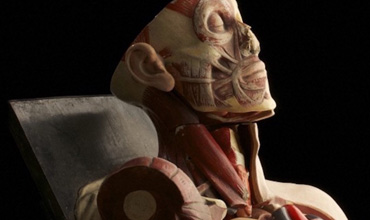Perception and Feedback of Undergraduate Medical Students on Medical Humanities

Abstract:
Medical
humanities (MH) has been defined as “an interdisciplinary and increasingly
international endeavor that draws on the creative and intellectual strengths of
diverse disciplines including literature, art, creative writing, drama, film,
music, philosophy, ethical decision making, anthropology, and history in
pursuit of medical educational goals” [1] There is a great need of a “humane”
doctor, with the understanding, assisted by interpretative ability and insight,
and governed by ethical sensitivity, to apply this scientific evidence and
skills to the individual patient.[2].
Empathy
is a term difficult to define and it is said that in encompasses ethics,
professionalism, communication skills and is much more and beyond these.
Empathy describes the ability of the doctor to visualize and understand the
patient’s suffering, pain and perspective and then communicate back to him with
the aim of healing him [3,4]. Empathy is a better understanding of and
alleviation of human suffering and therefore it has cognitive, psychomotor as
well as an affective component. It is essentially a quality which helps doctors
gain an insight into the quality of pain being experienced by the patient and
doing something active to allay his pain and solve his problem.
References:
[1].American Society for Bioethics
and Humanities. Purpose of the ASBH. Available at: www.asbh.org/about/purpose.htm
[2].Costa, P., Magalhães, E. & Costa, M.J. A latent growth model suggests that empathy
of medical students does not decline over time. Adv in Health SciEduc (2013) 18: 509. doi:10.1007/s10459-012-9390-z
[3].Downie RS, Macnaughton J. Clinical judgement: evidence in practice.
Oxford, Oxford University Press, 2000.
[4].General Medical Council. Tomorrow’s doctors: recommendations on undergraduate
medical education. London: GMC, 1993.
[5].Kirklin D. The Centre for Medical Humanities,
Royal Free and University College Medical School, London, England. Acad Med. 2003;
78:1048-53.
[6].Macnaughton J. The humanities in medical
education: context, outcomes and structures.
J Med Ethics: Medical Humanities 2000;26:23–30
[7].NunesP, Williams S, Sa B, Stevenson K. A study of empathy decline in students from
five health disciplines during their first year of training. International Journal
of Medical Education. 2011; 2:12-17. http://creativecommons.org/licenses/by/3.0
[8].Shamlar PR, Piryani RM, Thapa TP, Karki
BM. Our experiences with ‘Sparshanam’, a medical humanities module for medical students
at KIST Medical College, Nepal. J Clin Diag Res. 2010;4: 2158-62.
[9].Shankar PR. A voluntary medical humanities
module in a medical college in Western Nepal: participant feedback. Teach Learn
Med. 2009;21:248-53.
[10]. Shah N and Aly SM. Teaching of medical humanities in medical universities of Pakistan J Pak Med Assoc. Vol. 65, No. 4, April 2015

